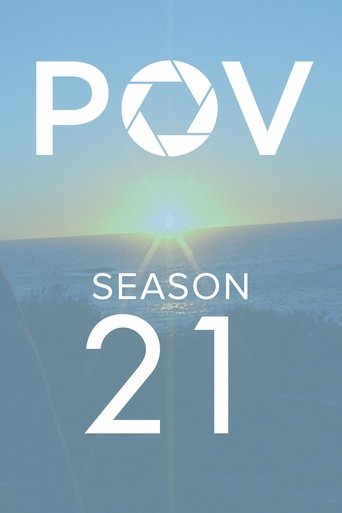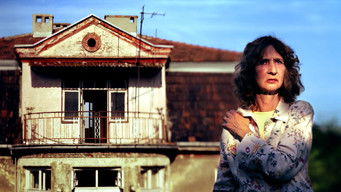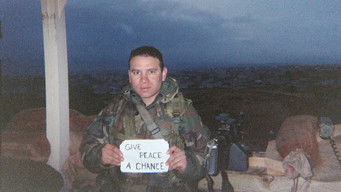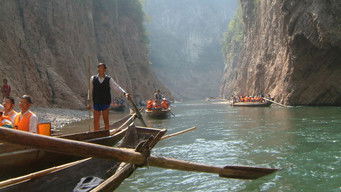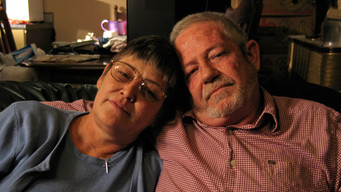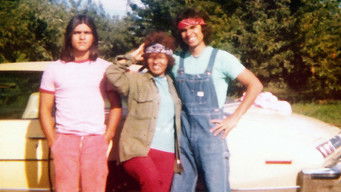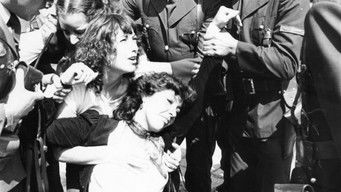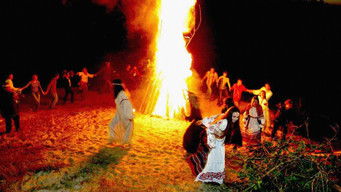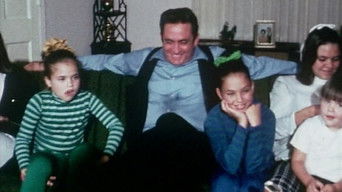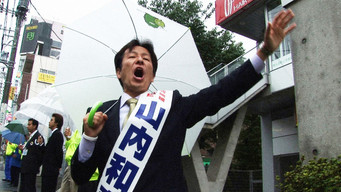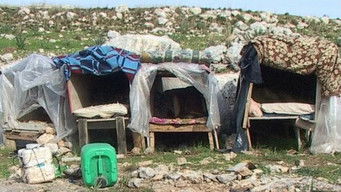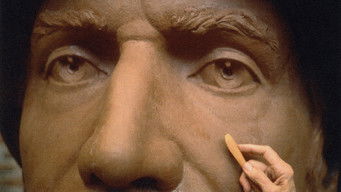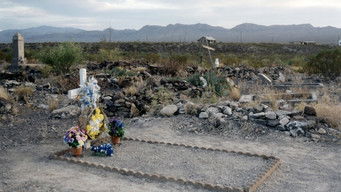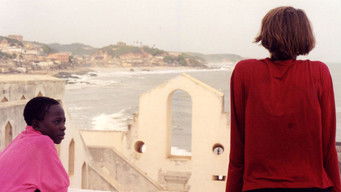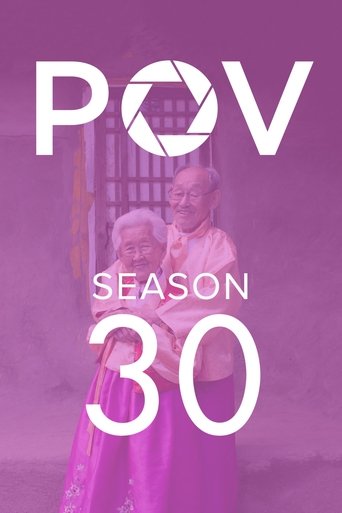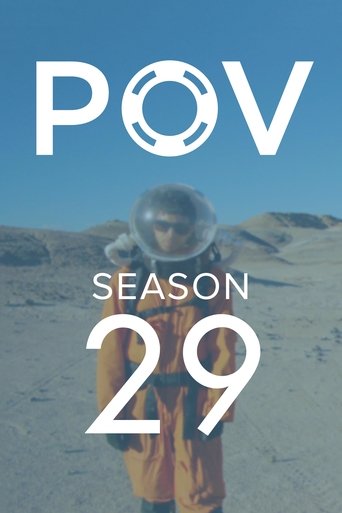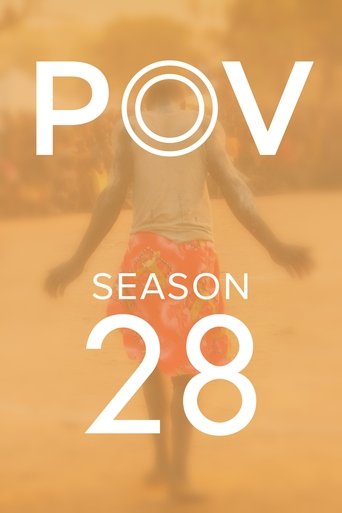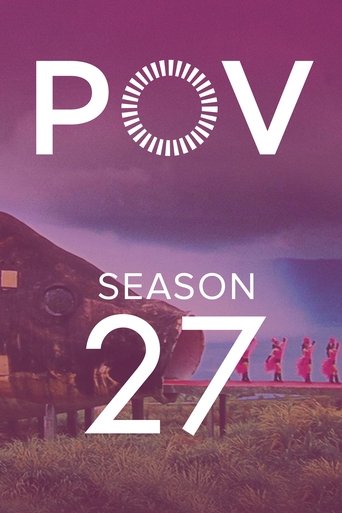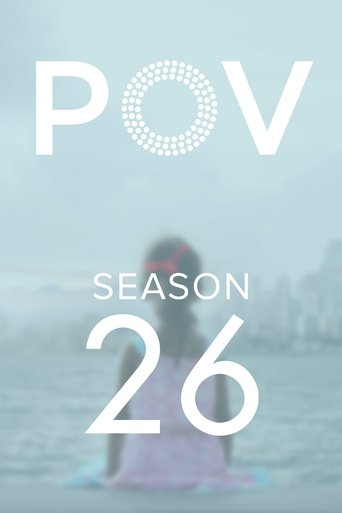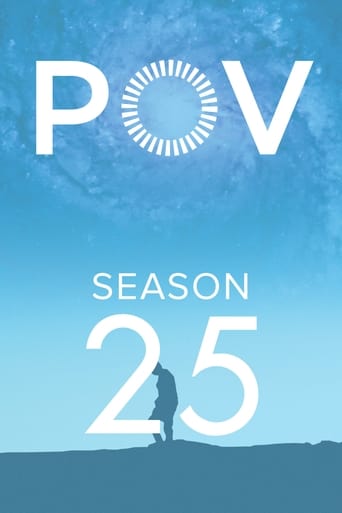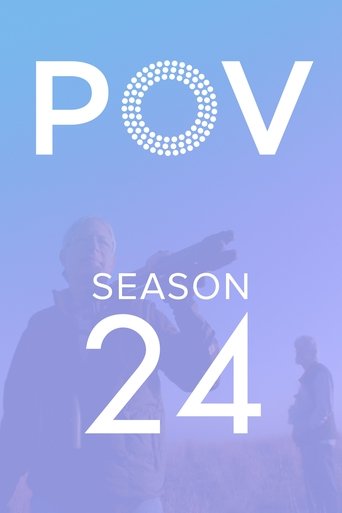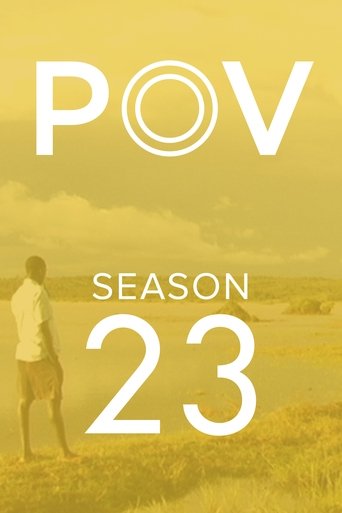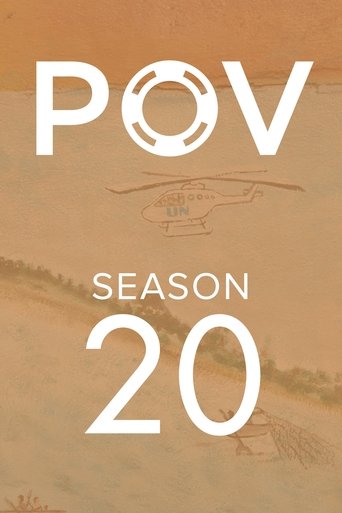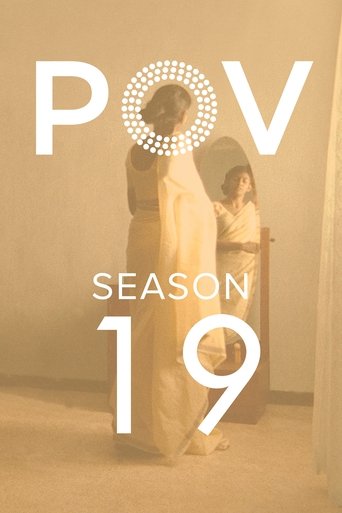POV Season 21
POV is a Public Broadcasting Service public television series which features independent nonfiction films. POV is an initialism for point of view. POV is the longest-running showcase on television for independent documentary films. PBS presents 14-16 POV programs each year, and the series has premiered over 300 films to U.S. television audiences since 1988. POV's films have a strong first-person, social-issue focus. Many established directors, including Michael Moore, Jonathan Demme, Terry Zwigoff, Errol Morris, Albert and David Maysles, Michael Apted, Frederick Wiseman, Marlon Riggs, and Ross McElwee have had work screened as part of the POV series. The series has garnered both critical and industry acclaim over its 20-plus years on television. POV programs have also won major industry awards including three Oscars, 32 Emmys, 36 Cine Golden Eagles, 15 Peabody Awards, 11 Alfred I. duPont-Columbia Awards, the Prix Italia and the Webby Award.
Watch Trailer
POV Season 21 Full Episode Guide
Imagine watching Schindler's List and knowing the sadistic Nazi camp commandant played by Ralph Fiennes was your father. Inheritance is the story of Monika Hertwig, the daughter of mass murderer Amon Goeth. Hertwig has spent her life in the shadow of her father's sins, trying to come to terms with her "inheritance." She seeks out Helen Jonas, who was enslaved by Goeth and who is one of the few living eyewitnesses to his unspeakable brutality. The women's raw, emotional meeting unearths terrible truths and lingering questions about how the actions of our parents can continue to ripple through generations.
When is it right to kill? In the midst of war, is it right to refuse? Eight U.S. soldiers today, some who killed and some who said no, reveal their inner moral dilemmas in Soldiers of Conscience. Made with official permission of the U.S. Army, the film transcends politics to explore the tension between spiritual values and military orders. Soldiers follows the stories of both conscientious objectors and those who criticize them. Through this clash of views, the film discovers a surprising common ground: all soldiers are "soldiers of conscience," torn between the demands of duty and the call of conscience.
Nearing completion, China's massive Three Gorges Dam is altering the landscape and the lives of people living along the fabled Yangtze River. Countless ancient villages and historic locales will be submerged, and 2 million people will lose their homes and livelihoods. The Yu family desperately seeks a reprieve by sending their 16-year-old daughter to work in the cruise ship industry that has sprung up to give tourists a last glimpse of the legendary river valley. With cinematic sweep, Up the Yangtze explores lives transformed by the biggest hydroelectric dam in history, a hotly contested symbol of the Chinese economic miracle. An official selection of the 2008 Sundance Film Festival. An EyeSteelFilm/National Film Board of Canada production in association with American Documentary | P.O.V. A co-presentation with the Center for Asian American Media (CAAM).
How much would you sacrifice to survive? When Chicago filmmaker Joanna Rudnick tested positive for the "breast cancer gene" at age 27, she knew the information could save her life. And she knew she was not only confronting mortality at an early age, but also was going to have to make heart-wrenching decisions about the life that lay ahead of her. Should she take the irreversible preventive step of having her breasts and ovaries removed or risk developing cancer? What would happen to her romantic life, her hopes for a family? In the Family documents Rudnick's efforts to reach out to other women while facing her deepest fears. A co-production of Joanna Rudnick, Kartemquin Films and Independent Television Service (ITVS).
What happens if you fall sick and are one of 47 million people in America without health insurance? Critical Condition by Roger Weisberg (Waging a Living, POV 2006) puts a human face on the nation's growing health care crisis by capturing the harrowing struggles of four critically ill Americans who discover that being uninsured can cost them their jobs, health, home, savings, even their lives. Filmed in vérité style, Critical Condition offers a moving and invaluable expose at a time when the nation is debating how to extend health insurance to all Americans. A production of Public Policy Productions in association with Thirteen/WNET New York and American Documentary | POV
When brothers Armando and Carlos Peña set off to carry their mother's ashes to south Texas, their road trip turns into a quest for answers about a strangely veiled past. As they reunite with five other brothers, the two men try to piece together their family's shattered history. Why was their mother cast out by her family? What happened to their father, who disappeared during the notorious 1954 U.S. deportation program Operation Wetback? Calavera Highway is a sweeping story of seven Mexican-American men grappling with the meaning of masculinity, fatherhood and a legacy of rootless beginnings. Produced in association with American Documentary | P.O.V. A co-presentation of Latino Public Broadcasting. Funded in part by Center for Asian American Media with funds provided by the Corporation for Public Broadcasting.
When in 1998 Chilean judge Juan Guzmán was assigned the first criminal cases against the country's ex-dictator, General Augusto Pinochet, no one expected much. Guzmán had supported Pinochet's 1973 coup — waged as an anti-Communist crusade — that left the democratically elected president, Salvador Allende, and thousands of others dead or "disappeared." The filmmakers trace the judge's descent into what he calls "the abyss," where he uncovers the past — including his own role in the tragedy. The Judge and the General reveals one of the 20th century’s most notorious episodes and tells a cautionary tale about violating human rights in the name of "higher ideals." A co-production of Independent Television Service (ITVS) in association with Latino Public Broadcasting.
Belarus has been called "Europe's last dictatorship." Since 1994, Alexander Lukashenko has ruled the ex-Soviet republic with a despotic hand, jailing the opposition, shutting down the press and refusing to investigate the assassinations of dissidents. He has virtually silenced his critics — but not one lone performance artist who stages public stunts mocking the dictator's pretensions. Belarusian Waltz is the story of Alexander Pushkin, whose audacious, comical exploits find him facing the hostility of the police and the consternation of his family. An offbeat tale of post-modern street theater meeting 1930s-style authoritarianism, the film offers a surprising window into the soul of the Belarusian people.
In this classic 1969 documentary, the Man in Black is captured at his peak, the first of many in a looming roller-coaster career. Fresh on the heels of his Folsom Prison album, Cash reveals the dark intensity and raw talent that made him a country music star and cultural icon. Director Robert Elfstrom got closer than any other filmmaker to Cash, who is seen performing with his new bride June Carter Cash, in a rare duet with Bob Dylan, and behind the scenes with friends, family and aspiring young musicians. Johnny Cash: The Man, His World, His Music paints an unforgettable portrait that endures beyond the singer's 2003 death.
This is democracy — Japanese style. Campaign provides a startling insider's view of Japanese electoral politics in this portrait of a man plucked from obscurity by the ruling Liberal Democratic Party (LDP) to run for a critical seat on a suburban city council. Kazuhiko "Yama-san" Yamauchi's LDP handlers are unconcerned that he has zero political experience, no charisma, no supporters and no time to prepare. What he does have is the institutional power of Japan's modern version of Tammany Hall pushing him forward. Yama-san allows his life to be turned upside down as he pursues the rituals of Japanese electioneering — with both tragic and comic results. A co-presentation with the Center for Asian American Media (CAAM).
A group of young Palestinian men work illegally as construction laborers in the Israeli city of Modi'in. Caught between Israeli security laws and a Palestinian Authority they see as having failed them, they work for Israeli contractors by day while hiding from police by night. Like youths everywhere, they pass their idle hours talking about love, marriage and future hopes. Israeli filmmaker Ido Haar has crafted a powerful vérité film that illuminates the plight of young men questioning their own culture while struggling to survive in the midst of bitter conflict.
Renowned sculptor John Houser has a dream: to build the world's tallest bronze equestrian statue for the city of El Paso, Texas. He envisions a stunning monument to Spanish conquistador Juan de Oñate that will honor the contributions Hispanic people made to building the American West. But as the project nears completion, troubles arise. Native Americans are outraged — they remember Oñate as the man who brought genocide to their land and sold their children into slavery. As El Paso divides along lines of race and class in The Last Conquistador, the artist must face the moral implications of his work.
In 1997, U.S. Marines patrolling the Texas-Mexico border as part of the War on Drugs shot and killed Esequiel Hernández Jr. Mistaken for a drug runner, the 18-year-old was, in fact, a U.S. citizen tending his family's goats with a .22 rifle. He became the first American killed by U.S. military forces on native soil since the 1970 Kent State shootings. The Ballad of Esequiel Hernández, narrated by Tommy Lee Jones, explores Hernandez's tragic death and its torturous aftermath. His parents and friends, the Marines on patrol, and investigators discuss the dangers of militarizing the border and the death of one young man.
Forget the pie charts, color-coded maps and hyperventilating pundits. What's the street-level experience of voters in today's America? In a triumph of documentary storytelling, Election Day combines 11 stories — shot simultaneously on November 2, 2004, from dawn until long past midnight — into one. Factory workers, ex-felons, harried moms, Native American activists and diligent poll watchers, from South Dakota to Florida, take the process of democracy into their own hands. The result: an entertaining, inspiring and sometimes unsettling tapestry of citizens determined on one fateful day to make their votes count.
The 21st-season opener features "Traces of the Trade: A Story From the Deep North," an exploration of filmmaker Katrina Brown's slave-trading ancestors, the Rhode Island DeWolfs. She and nine relatives (including Tom DeWolf, author of "Inheriting the Trade") retrace the old slave-trading route, including stops in Bristol, R.I., Ghana and Cuba.
Seasons



